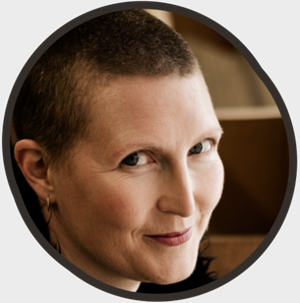Fully Clothed and So Forgetful by Hannah Mettner
(Wellington: Victoria University Press, 2017) ISBN 9781776561049. RRP $25. Paperback. 91 pages.
Late last year, I was a student in Victoria University’s Reading and Writing Poetry, under the adorable and slightly chaotic hand of Anna Jackson. I didn’t make it to every lecture, due to living two hours north of Wellington and having to do that whole, y’know, work thing. But every Monday, I got to spend an entire day of tutorials, workshopping and lectures.
For our final lecture, Anna arranged a poetry reading with a delicious range of guest poets, including Hannah Mettner. She read (amongst other poems) the spectacularly wonderful “Schrödinger’s pink corduroy miniskirt”. Who is this woman? I wondered. And how does she know about my not-pink-corduroy-miniskirt-butmy-Schrödinger’s-green-dress-and-my-Schrödinger’s-redhigh-heels and all the other Schrödinger wardrobe and life moments?
Happily, wonderfully, Fully Clothed and So Forgetful includes this poem. There are also others I had previously read but never managed to get filed together in my brain, with Hannah’s name on the front of the folder, such as “The proof of a lady”, “How we fucked up” and “Things you could do with time travel” (although I must admit I prefer the original title, “Things you could do with time travel and a brown paper bag”; it added something to the poem that now… isn’t).
There are other gems to be found in here. I love the poems that are inventive and catch me off-guard, such as “Timeline of things you missed out on in the seventies”, which includes a timeline running down the pages. And “The war got good ratings”, worthy of mention for the title alone, which includes nothing but wonderful moments, such as:
If you concentrate really really hard on something it is basically praying. I have watched the pastor so hard he became a crucifix. This is why there are billboards where you are likely to get stuck in traffic.
There are new favourites, like “Queen bed”, which is the kind of delicious mix of quirky odd fantasy with underlying reality that makes me smile for a very long time:
And to put me to sleep would be a bard. Yes, a bard because bards are the best! He would put his hand on my ankle and tell me long, smooth stories about sex until his fingers were where my thighs met and I had stopped thinking about the states of the road, or the bus drivers’ union or parental involvement in schools.
There are moments when the images are so beautifully penned that I wish she hadn’t written them so that I could write them myself.
He’s plucking out weeds
like little bouquets of wrong.
He presents them
to God. My father wakes up
early in the morning
to get to God first.
(“Father in the garden”)
All of “The love poem” is just a delight to experience, over and over. It’s the one that stays with me, even when the book is closed.
There are other moments when the poems lose me. “Baking a maybe” made my heart ache, until I got to the third section. And then I wondered if it really needed the third section, which took me off into another direction and I wasn’t really able to see where we went. Similarly, “Ways we love” just didn’t gel for me; there are parts I really like (the first stanza is rather spectacular) but then the rest butted against each other. And while that may well be part of it — that we love in ways that butt against ourselves — it still never found a place to settle in my brain. I just wanted to move on.
Fortunately, moving on will bring you to moments such as “Obscured by cloud”, which finishes with
…And I had my eyes closed
and you thought I was leaving, or dying
but I was just concentrating on feeling something
that wasn’t about us.
Hannah’s words do make me feel. They make me frown in puzzlement in the moments that don’t quite work for me, but they also make you laugh out loud. They make you want be loved and to love. They make you quietly say ‘oh’ to yourself. They make you remember the awkward moments of your younger self. They make you want a queen bed.
First published in a fine line (New Zealand Poetry Society Magazine) (2017)




